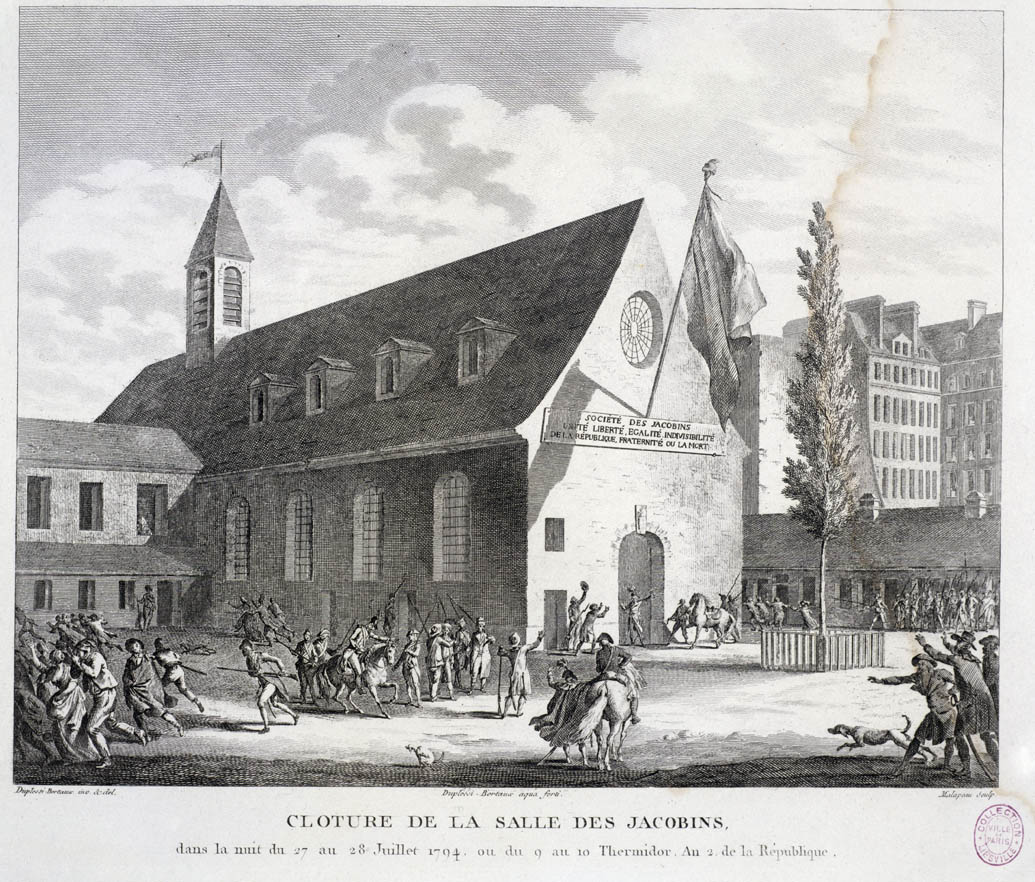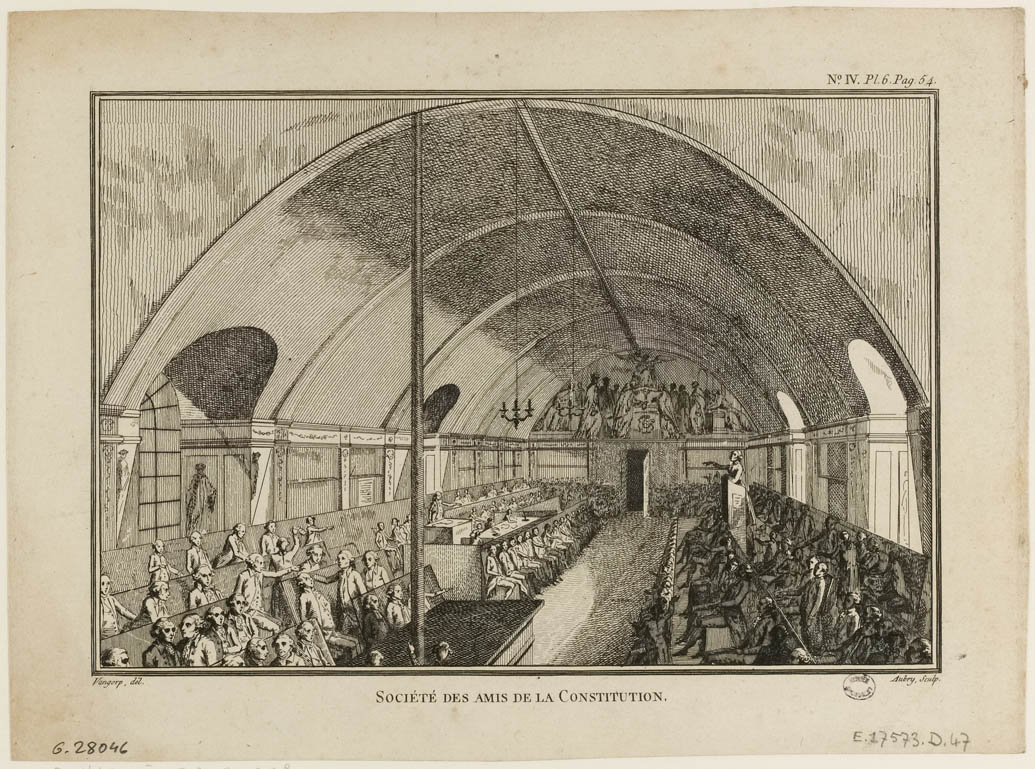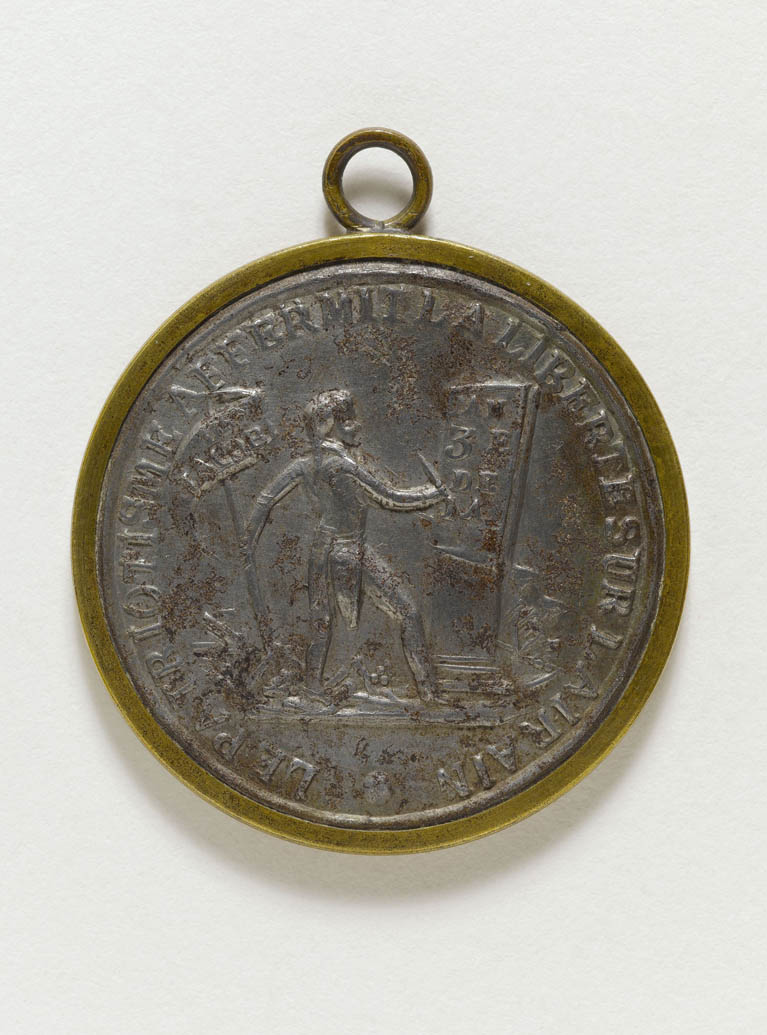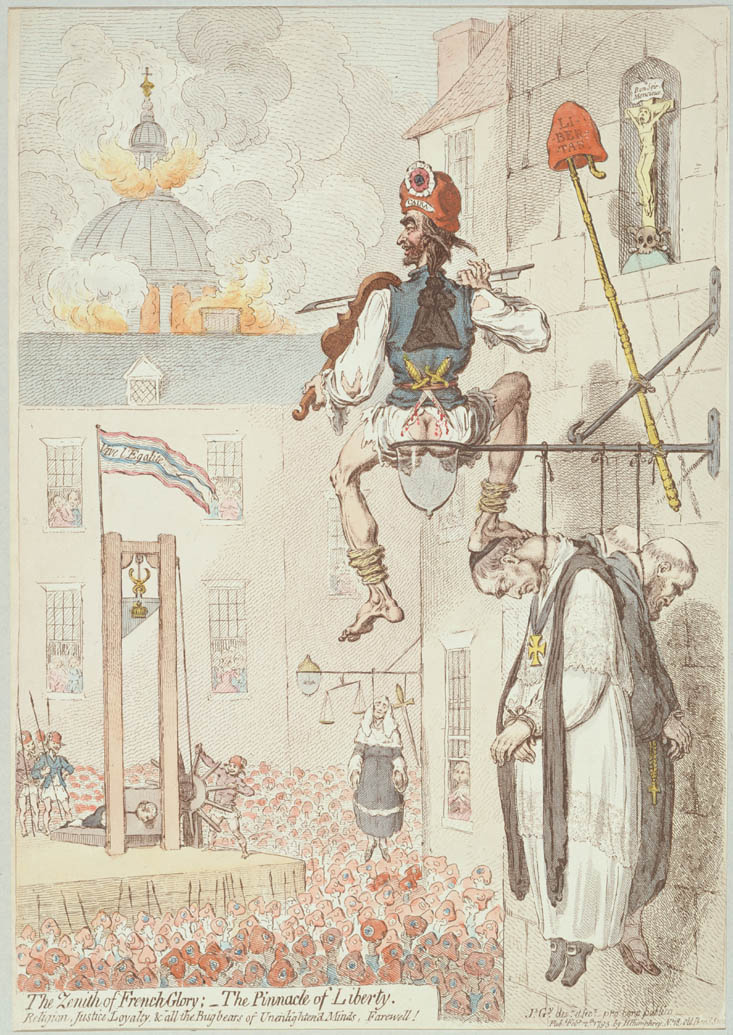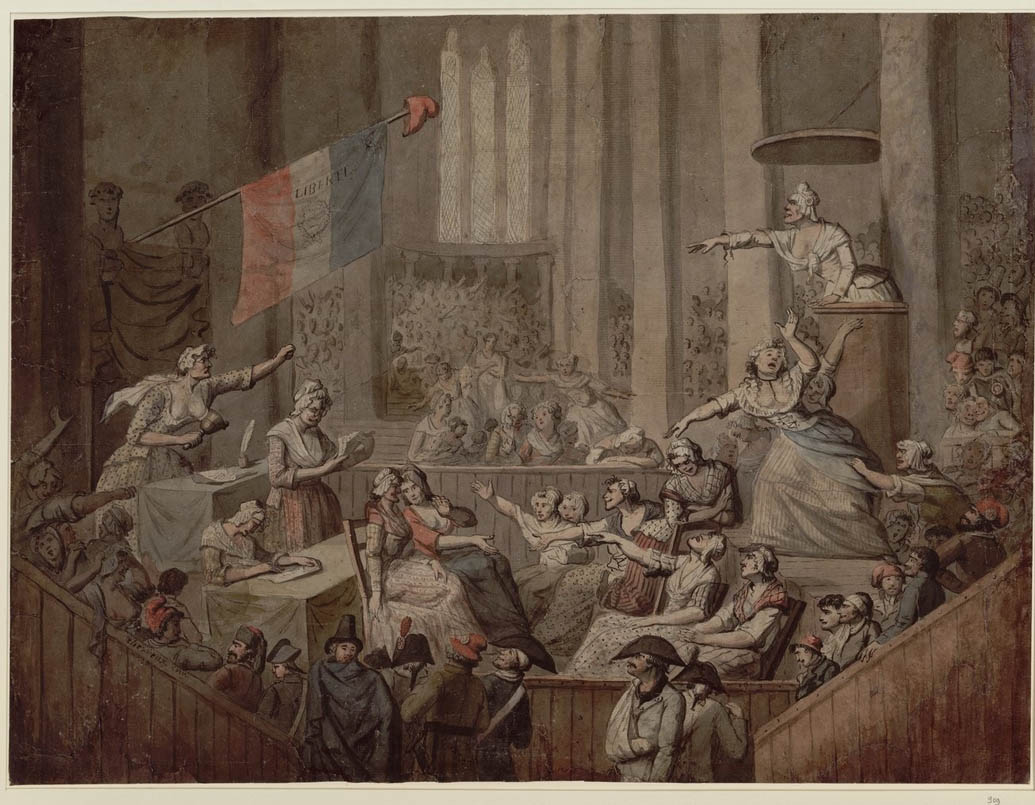The Jacobin Club and Revolutionary Republicans
During the Revolution, the “Jacobin” Dominican monastery occupied the current Place du Marché Saint-Honoré. In the autumn of 1789, when the Assembly moved near the Tuileries, a group of Breton deputies decided to rent the monastery’s chapel in order to assemble. The “Society of the Friends of the Constitution,” soon became the Jacobin Club. Including more than 1,000 members, the Jacobin Club of Paris was at the head of a vast federation of sister societies, which strove to implant the Revolution throughout the departments. In the library a different club gathered: the Society of Revolutionary Republican Women, exclusively made up of women.
Location
Itinerary58 place du marché Saint-Honoré
Suggestion
The Louvre and the Tuileries neighborhood
The Assembly in Paris
To find out more…
A source of misunderstanding
By being assimilated with the Revolution as a whole, the Jacobins paid a high price. For the British opposed to the French Revolution, the word “Jacobin” was practically synonymous with “sans-culotte,” “French revolutionary,” or even a bloodthirsty savage! In caricatures, the “Jacobins” appeared like monsters thirsty for blood. In France, especially as of 1794, the word “Jacobin” mainly referred to revolutionary violence. After having been heroes of the Revolution, the Jacobins became its foil! In fact, the Jacobins were a discussion and influential group generally connected to the Revolution, but whose opinions were very diverse.
Revolutionary Republican Women: a women’s only club
In 1989, during the French Revolution’s bicentennial, a plaque was placed in memory of the of the male Jacobin club. And yet, the women from the Society for Revolutionary Republic Women were forgotten. Founded on May 10, 1793 by Pauline Léon, Constance Evrard, Félicité Colombe and Claire Lacombe, the society held meetings in this same location. Among the 170 members, there were many shopkeepers, workers, servants and employees. These women demanded the right to bear arms in order to defend the democratic and social republic that they so desired. If they never truly demanded equality of the sexes, they criticized masculine domination. In a meeting, Citizen Monic stated: “women are worthy of governing, I would say almost better than men.”


